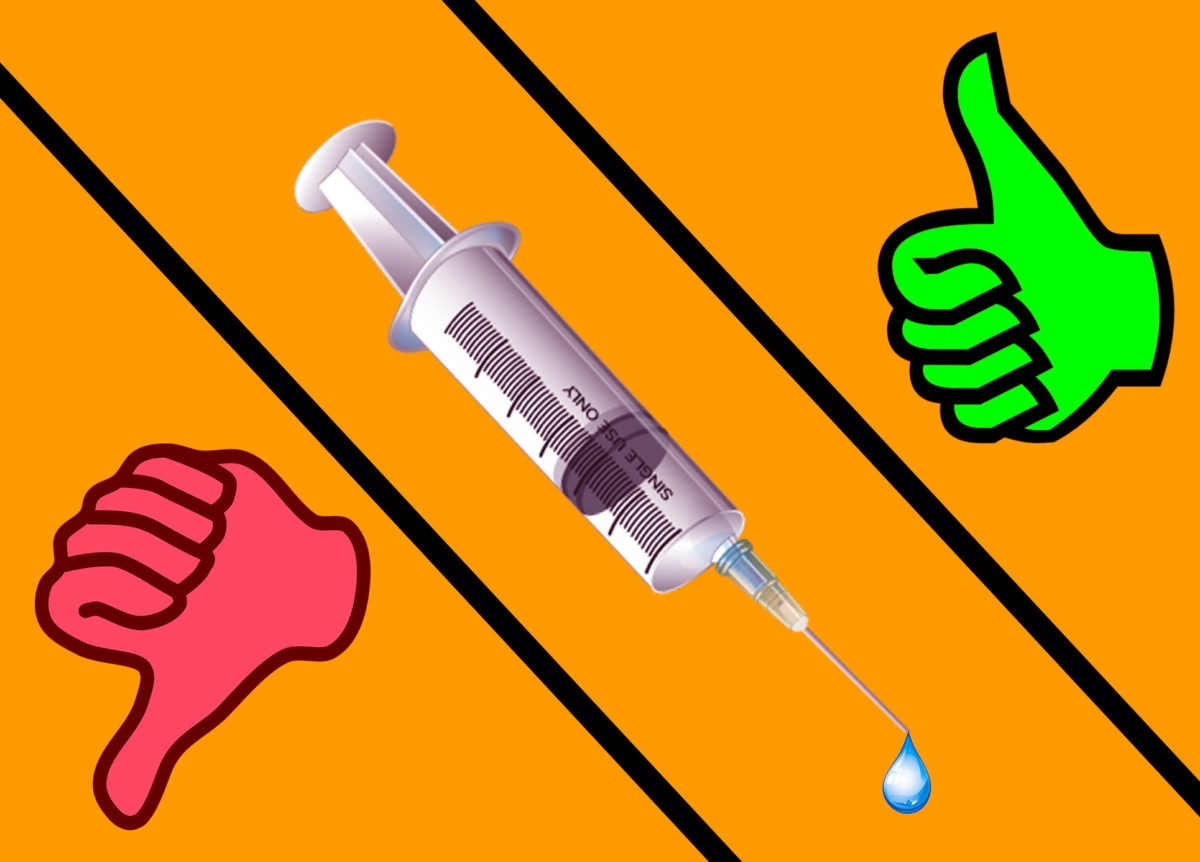When you log onto any social media site, there’s a chance you’ll find an anti-vaccination meme. Known as anti-vaxx or anti-vaxxer memes, they tell jokes about parents who don’t believe in vaccinating their children.
St. Thomas University professor Rodger Wilkie often shares these memes on his Facebook page. Although he finds the memes funny, and believes anti-vaxxers are “idiots,” he understands that anti-vaxxers just want to protect their children.
“They’re concerned about the well-being of their kids,” Wilkie said. “That’s the common ground. Everybody cares about their kids.”
Actress Jenny McCarthy is considered the face of the anti-vaxx movement. In 2008, she appeared on Larry King Live and argued that vaccines cause autism. She claimed it caused her son Evan’s autism. Her argument was based off doctor Andrew Wakefield’s fraudulent research that claimed the measles, mumps and rubella vaccine could cause autism.
STU fine arts and psychology student Allie Jeffrey said the anti-vaxx movement is upsetting because it shows some people think autism is worse than preventable diseases.
“It’s heartbreaking for me that people would rather risk having a sick child than having a child whose brain works a little differently,” Jeffery said.
Many anti-vaxxers are also against vaccines because they don’t want to support Big Pharma. Wilkie agrees Big Pharma is an issue, but thinks it can be overlooked when considering the danger of not vaccinating.
“People wave their magic wand and they say, ‘Oh, but Big Pharma is making money off this’ and then all of a sudden it’s as if the logic of your arguments don’t apply because somebody is making a profit.”
Wilkie thinks there should be vaccination policies everywhere that require parents by law to vaccinate their children.
In New Brunswick, children are required to have proof of immunization when they start school. Exceptions are made if they have a medical exemption note signed by a medical practitioner or nurse practitioner. They can also present a form provided by the minister of health and signed by a parent or legal guardian listing their objections.
The Government of New Brunswick website states proof of immunization against measles, mumps, rubella, diphtheria, tetanus and polio has been required since 1982. It also says proof of immunization against pertussis, varicella and meningococcal disease was added in 2009.
Fourth-year STU student Keegan Auxentius’ mother and sister have compromised immune systems so they can’t get vaccines. Auxentius grew up on a farm and said he thinks there are ways people without compromised immune systems can prevent diseases rather than getting vaccines.
“When you look at different environmental factors and how you were raised, it can help give you a stronger immune system,” he said. “By focusing on more natural ways to boost your immune system. I think that can be pretty effective.”
Auxentius thinks anti-vaxx memes can stop the flow of healthy conversation, but admitted he laughs at them from time to time.
“I think by belittling somebody in their quest for truth is abrasive,” he said.
Ayub Chishti, a pharmacist at the campus pharmacy, said vaccines are important for several reasons.
“Not just because I’m a pharmacist, I’m a father too, and to me vaccinations are very important. Because of [them], our world is free of a lot of diseases,” said Chishti.
Chishti administers vaccines at the campus pharmacy. For students who weren’t vaccinated as children but now want to be vaccinated, they can get them there for a lower price than most other pharmacies.
He said a lot of places charge a consultation fee which can cost up to $65, but the campus pharmacy waives it. The pharmacy also waives the prescription fee and the vaccination charge. Students are only required to pay for the drug.
“Vaccinations are like taking insurance. So, how much protection do you want against something just in case it happens?”

